public class Concept {
int num;
public static void main(String args[])
{
Concept obj1=new Concept();
Concept obj2=obj1;
obj1.num=100;
obj2.num=200;
System.out.println(obj1.num);
System.out.println(obj2.num);
//obj1.num=null;
obj2.num=500;
System.out.println(obj1.num);
System.out.println(obj2.num);
}
}
Here, this is simple java program.
Output is
200
200
500
500
How does the memory allocation work here? And how can we set null as Obj1.num=null?
